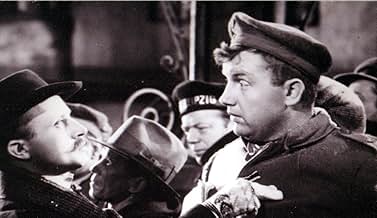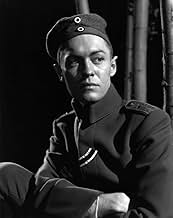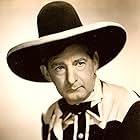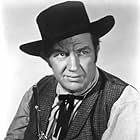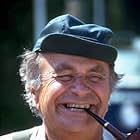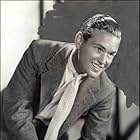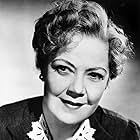After World War I, a group of former German soldiers try to adjust to civilian life.After World War I, a group of former German soldiers try to adjust to civilian life.After World War I, a group of former German soldiers try to adjust to civilian life.
John 'Dusty' King
- Ernst
- (as John King)
Larry J. Blake
- Weil
- (as Larry Blake)
- Director
- Writers
- All cast & crew
- Production, box office & more at IMDbPro
Storyline
Did you know
- TriviaFearful that this film would not do well overseas, the new regime at Universal Pictures severely edited the film before release, removing much of the strongly anti-Nazi slant that author Erich Maria Remarque included in the original novel, and which director James Whale intended to retain in the film version.
- ConnectionsFeatured in Now You See Him: The Invisible Man Revealed! (2000)
Featured review
The cinematic rights to German novelist Erich Maria Remarque's sequel to his celebrated "All Quiet On The Western Front", turned into an Oscar-winning masterpiece by Universal in 1930, was apparently picked up before the text was even completed. When the book did not meet with the same resounding success as the original (if anything, it was deemed inconvenient to the Third Reich, then in power, and summarily banned!), its filming was delayed until 1937 – when another world conflict was evidently looming.
With it, they entrusted their top director at the time who, even if he had mainly excelled within the fantasy genre, demonstrated he was capable of turning his attention to practically anything; after all, his very first two films were war pictures – albeit one was a British production (1930's JOURNEY'S END) and on the other his official credit was as dialogue director (HELL'S ANGELS, from the same year). As it happened, the studio heads – Carl Laemmle and his namesake offspring (who had championed Whale's obvious talent while tolerating his flamboyant lifestyle) – relinquished power around this time and the director suddenly found himself exposed to bureaucracy (brought on by intimidation from outsiders, namely the Nazi Party, who threatened to boycott all subsequent Universal productions unless the anti-Fascist sentiments in the script were excised!) and prejudice (his homosexuality supplying the perfect excuse to cut him down to size!).
Anyway, the resulting film (adapted by R.C. Sheriff, who had authored the play on which JOURNEY'S END was based) was bowdlerized to suit these political – and, doubtless, also economical – exigencies, Whale virtually disowned it and would leave Universal for good soon after completing work on WIVES UNDER SUSPICION (1938)! For this reason, THE ROAD BACK has always been considered a disappointment – in any case, it was clearly overshadowed by another major anti-war movie, namely Jean Renoir's contemporaneous LA GRAND ILLUSION – as both a Whale picture and a follow-up to a classic film (there was even talk that its negative was irretrievably lost but, happily, this did not prove to be the case!). Still, let us analyze the evidence at hand, i.e. the picture as it stands now: it is hardly the dud it has been written off as – Whale's reaction is natural and understandable but, if one were to dismiss a film merely for the fact that its creator's original intentions were not adhered to, I doubt Erich von Stroheim and Orson Welles would enjoy much of a reputation today (outside of their undeniable acting abilities and, of course, the latter's CITIZEN KANE [1941])!
The narrative begins in trenches (highlighted by elaborate tracking shots and just one short burst of action), reverts to the social life of the returning soldiers (to which they predictably fail to adjust, so much so that they prefer to keep each other company rather than stay with their loved ones – I am sure some would venture to make a case for a gay statement out of this!) and culminates in a murder trial (one of the most memorable and affecting I have ever watched – and that is no mean feat!). Romantic hopes are dashed by recurring memories of combat (lead John King was fiancé to pal Richard Cromwell's sister, who waits for him regardless and finally manages to reconcile his confused spirit towards achieving peace-of-mind) or else by the unfaithfulness of the girl concerned (which brings about the murder of her profiteer lover and whose subsequent trial finds Lionel Atwill in much the same role he had played in Whale's ONE MORE RIVER [1934]!).
It repeats, to notably less effect, the modest casting rule applied to Lewis Milestone's ALL QUIET ON THE WESTERN FRONT; there is also a similar disillusioned-return-to-the-classroom sequence and a call upon colleagues committed to an insane asylum to parallel the hospital visit to a dying buddy in the original. Catching the names of Slim Summerville (reprising his role from the earlier film!) and Andy Devine among the cast-list (by the way, the scrolling titles were a classy touch), I was ready for an over-abundance of comedy relief which, however, did not come to pass. Indeed, their contempt-of-court antics at the climax help relieve the dramatic tension and necessary preachiness! The same goes for Etienne Girardot as the doddering mayor, who is disturbed from his slumber by disgruntled townsfolk-cum-political activists for an impromptu dead-of-night rally – which leads to the tragedy of John Emery's Major, a career officer, shooting down a former member of his troop in the ensuing riot!
Incidentally, Whale's directorial flair – aided by the camera-work of John J. Mescall and George Robinson (the latter stepped in for the former when his drinking problem got out of control!) – is particularly felt during crowd scenes such as this; another is the outfit's arrival in town being dampened by the young anarchists' show of contempt to their uniforms. Still, quieter moments are no less powerful: the Major stripping himself of his rank in seclusion at the announcement of the Armistice, the surviving soldiers being joined by their ghostly colleagues when the substantially-diminished platoon files up in a town parade, etc. The coda (shot by uncredited director Sloman) – which replaced a controversial scene depicting war veterans King and Cromwell stumbling upon a group of children being indoctrinated into Nazism by a dwarf! – boasts a heartfelt plea for Peace which is, however, undercut by the rolling passage of years bringing us to the current impending struggle. For the record, Whale's original cut ran for 105 minutes, the revised version clocked in at 103 (which is the one I watched), but this was again re-touched (by director Frank Tuttle and cinematographer Stanley Cortez!) for a 1939 re-issue which whittled down the running-time further to the 'official' 97!
With it, they entrusted their top director at the time who, even if he had mainly excelled within the fantasy genre, demonstrated he was capable of turning his attention to practically anything; after all, his very first two films were war pictures – albeit one was a British production (1930's JOURNEY'S END) and on the other his official credit was as dialogue director (HELL'S ANGELS, from the same year). As it happened, the studio heads – Carl Laemmle and his namesake offspring (who had championed Whale's obvious talent while tolerating his flamboyant lifestyle) – relinquished power around this time and the director suddenly found himself exposed to bureaucracy (brought on by intimidation from outsiders, namely the Nazi Party, who threatened to boycott all subsequent Universal productions unless the anti-Fascist sentiments in the script were excised!) and prejudice (his homosexuality supplying the perfect excuse to cut him down to size!).
Anyway, the resulting film (adapted by R.C. Sheriff, who had authored the play on which JOURNEY'S END was based) was bowdlerized to suit these political – and, doubtless, also economical – exigencies, Whale virtually disowned it and would leave Universal for good soon after completing work on WIVES UNDER SUSPICION (1938)! For this reason, THE ROAD BACK has always been considered a disappointment – in any case, it was clearly overshadowed by another major anti-war movie, namely Jean Renoir's contemporaneous LA GRAND ILLUSION – as both a Whale picture and a follow-up to a classic film (there was even talk that its negative was irretrievably lost but, happily, this did not prove to be the case!). Still, let us analyze the evidence at hand, i.e. the picture as it stands now: it is hardly the dud it has been written off as – Whale's reaction is natural and understandable but, if one were to dismiss a film merely for the fact that its creator's original intentions were not adhered to, I doubt Erich von Stroheim and Orson Welles would enjoy much of a reputation today (outside of their undeniable acting abilities and, of course, the latter's CITIZEN KANE [1941])!
The narrative begins in trenches (highlighted by elaborate tracking shots and just one short burst of action), reverts to the social life of the returning soldiers (to which they predictably fail to adjust, so much so that they prefer to keep each other company rather than stay with their loved ones – I am sure some would venture to make a case for a gay statement out of this!) and culminates in a murder trial (one of the most memorable and affecting I have ever watched – and that is no mean feat!). Romantic hopes are dashed by recurring memories of combat (lead John King was fiancé to pal Richard Cromwell's sister, who waits for him regardless and finally manages to reconcile his confused spirit towards achieving peace-of-mind) or else by the unfaithfulness of the girl concerned (which brings about the murder of her profiteer lover and whose subsequent trial finds Lionel Atwill in much the same role he had played in Whale's ONE MORE RIVER [1934]!).
It repeats, to notably less effect, the modest casting rule applied to Lewis Milestone's ALL QUIET ON THE WESTERN FRONT; there is also a similar disillusioned-return-to-the-classroom sequence and a call upon colleagues committed to an insane asylum to parallel the hospital visit to a dying buddy in the original. Catching the names of Slim Summerville (reprising his role from the earlier film!) and Andy Devine among the cast-list (by the way, the scrolling titles were a classy touch), I was ready for an over-abundance of comedy relief which, however, did not come to pass. Indeed, their contempt-of-court antics at the climax help relieve the dramatic tension and necessary preachiness! The same goes for Etienne Girardot as the doddering mayor, who is disturbed from his slumber by disgruntled townsfolk-cum-political activists for an impromptu dead-of-night rally – which leads to the tragedy of John Emery's Major, a career officer, shooting down a former member of his troop in the ensuing riot!
Incidentally, Whale's directorial flair – aided by the camera-work of John J. Mescall and George Robinson (the latter stepped in for the former when his drinking problem got out of control!) – is particularly felt during crowd scenes such as this; another is the outfit's arrival in town being dampened by the young anarchists' show of contempt to their uniforms. Still, quieter moments are no less powerful: the Major stripping himself of his rank in seclusion at the announcement of the Armistice, the surviving soldiers being joined by their ghostly colleagues when the substantially-diminished platoon files up in a town parade, etc. The coda (shot by uncredited director Sloman) – which replaced a controversial scene depicting war veterans King and Cromwell stumbling upon a group of children being indoctrinated into Nazism by a dwarf! – boasts a heartfelt plea for Peace which is, however, undercut by the rolling passage of years bringing us to the current impending struggle. For the record, Whale's original cut ran for 105 minutes, the revised version clocked in at 103 (which is the one I watched), but this was again re-touched (by director Frank Tuttle and cinematographer Stanley Cortez!) for a 1939 re-issue which whittled down the running-time further to the 'official' 97!
- Bunuel1976
- Feb 18, 2011
- Permalink
Details
- Runtime1 hour 40 minutes
- Color
- Aspect ratio
- 1.37 : 1
Contribute to this page
Suggest an edit or add missing content


